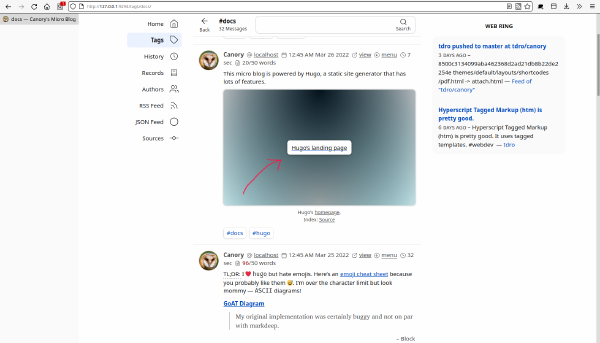It seems that.. from talking to a few people via email, basic feed discovery with rel alternates are ineffective. Simple redirects work better for organic discovery.
- /atom
->/path/to/real/{atom,rss}/feed - /rss
->/path/to/real/{atom,rss}/feed - /feed
->/path/to/real/{atom,rss}/feed


